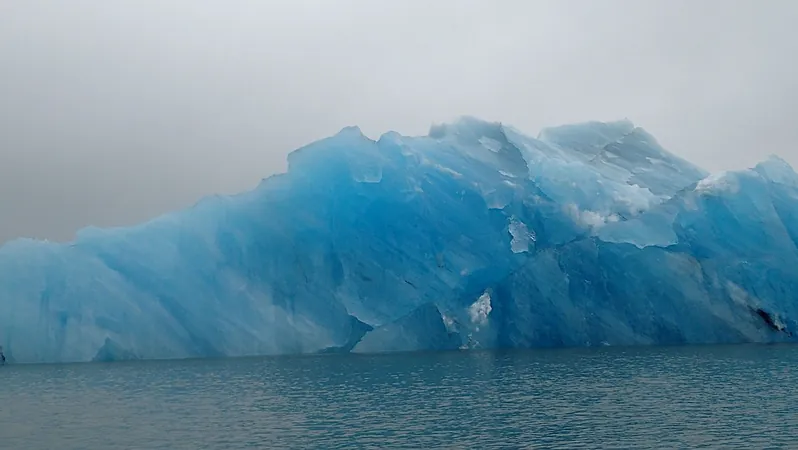
The Surprising Role of Ancient Glaciers in Earth's Evolution: Unveiling a Hidden Connection
2025-04-06
Author: Yu
Groundbreaking research from Curtin University illuminates the monumental influence of ancient glaciers on the evolution of life on Earth. These massive ice formations acted as colossal bulldozers, reshaping the planet's surface and laying the groundwork for complex life to thrive.
Through detailed chemical analysis of crystals embedded in ancient rocks, the researchers revealed a fascinating process. As glaciers advanced and receded, they did more than just sculpt landscapes; they dug deep into the Earth's crust, releasing essential minerals that significantly altered ocean chemistry.
This geological upheaval had staggering implications for our planet's ecosystem. When ancient ice sheets melted, they unleashed catastrophic floods that inundated the oceans with minerals and trace elements, including vital quantities of uranium. Lead author Professor Chris Kirkland from Curtin's Frontier Institute for Geoscience Solutions states that these changes coincided with a pivotal moment when more complex forms of life began to emerge.
“Our findings underscore the intricate connections among Earth's land, oceans, atmosphere, and climate,” Professor Kirkland remarked. “Ancient glacial activity ignited chemical chain reactions that played a crucial role in reshaping our planet.”
In a modern context, this research also casts new light on current climate change issues. Professor Kirkland suggests that the dramatic climatic shifts of the past highlight the potential for significant environmental transformations driven by both natural cycles and human activity. “While Earth itself is resilient, the conditions that foster life can be altered significantly,” he cautions.
Furthermore, this ancient paradigm emphasizes the importance of understanding historical climate patterns to anticipate how contemporary climate changes might reshape our future. Echoing this sentiment, co-researchers from the University of Portsmouth and St. Francis Xavier University in Canada also stress the need for a holistic view of environmental systems as they relate to life on Earth.
This study showcases not just a fascinating aspect of Earth's geologic history but serves as a compelling reminder: our planet's health and habitability are anything but static. With ongoing climate changes, the ripple effects of these ancient events could inform strategies for future ecological resilience.
As we reflect on the Earth's past, it's vital to harness these insights to navigate the challenges we face today in sustaining a livable planet. Could ancient glaciers hold the key to our survival? Only time—and our willingness to understand Earth's history—will tell.


 Brasil (PT)
Brasil (PT)
 Canada (EN)
Canada (EN)
 Chile (ES)
Chile (ES)
 Česko (CS)
Česko (CS)
 대한민국 (KO)
대한민국 (KO)
 España (ES)
España (ES)
 France (FR)
France (FR)
 Hong Kong (EN)
Hong Kong (EN)
 Italia (IT)
Italia (IT)
 日本 (JA)
日本 (JA)
 Magyarország (HU)
Magyarország (HU)
 Norge (NO)
Norge (NO)
 Polska (PL)
Polska (PL)
 Schweiz (DE)
Schweiz (DE)
 Singapore (EN)
Singapore (EN)
 Sverige (SV)
Sverige (SV)
 Suomi (FI)
Suomi (FI)
 Türkiye (TR)
Türkiye (TR)
 الإمارات العربية المتحدة (AR)
الإمارات العربية المتحدة (AR)